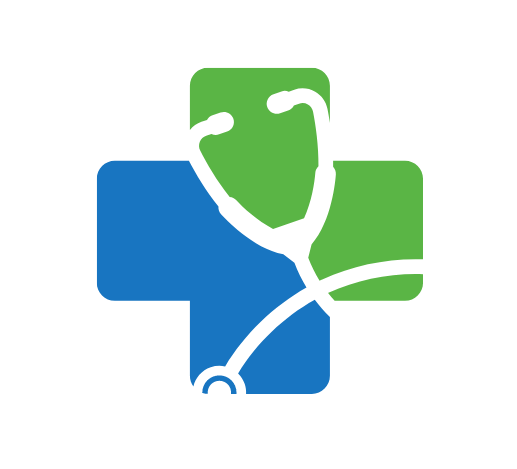
You forget where you put your keys. You feel stiff when getting up from a chair. Your hand starts to tremble — just slightly. Friends say you’re tired. You laugh it off, blaming stress, too much coffee, or not enough sleep.
But deep down, something feels off.
This is how early-onset Parkinson’s often starts. Quietly. Casually. Subtle symptoms that blend into daily life until one day, they don’t. Most people associate Parkinson’s with old age. And yes, the average diagnosis is around 60. But here’s something not enough people are talking about: it can start much earlier.
This guide was carefully written by the editorial team at www.turkishdoctor.ae, combining recent clinical findings with practical advice from neurologists who’ve seen the early signs firsthand — sometimes in patients as young as 30.
What exactly is early-onset Parkinson’s and how common is it?
Let’s start with the basics. Parkinson’s disease is a neurodegenerative disorder that affects movement. It’s caused by the gradual loss of dopamine-producing neurons in the brain, specifically in a region called the substantia nigra.
When symptoms begin before age 50, it’s considered early-onset Parkinson’s. And when they appear before 40, we call it young-onset Parkinson’s.
It’s not as rare as once thought. Up to 10% of all Parkinson’s cases are early-onset. That means, out of every 100 people diagnosed, about ten may have first noticed something wrong in their 30s or 40s. In Turkey, recent neurology records show a small but rising number of early diagnoses in patients under 45 — especially in urban centers like Ankara and Istanbul.
What’s behind this rise? Better awareness plays a role. So do genetics and environmental triggers. But the tricky part is catching it early, because the signs are often mistaken for something else.
The early signs are often non-motor — and that’s a problem
When most people think of Parkinson’s, they think of shaking hands or a shuffling walk. But the earliest signs can appear long before those. And often, they have nothing to do with movement.
In fact, in many early-onset cases, the first symptoms are what neurologists call non-motor. These include:
Loss of smell
Chronic constipation
Sleep disturbances (especially acting out dreams)
Mood changes (anxiety, mild depression)
Small, cramped handwriting
Persistent fatigue
None of these sound dramatic. In a fast-paced city like Dubai or Istanbul, it’s easy to blame poor sleep or stress. That’s why many early-stage patients go undiagnosed for years.
It’s not uncommon for someone to see a gastroenterologist for digestion issues or a psychiatrist for depression, only to find out later that both were early Parkinson’s signals.
One neurologist interviewed by www.turkishdoctor.ae recalls a patient who came in complaining of shoulder stiffness. She was 38, worked long hours, and thought it was poor posture. Two years later, the tremors started.
When movement symptoms appear, they can look very different
Once motor symptoms begin, things become a little clearer — but not always. Early-onset Parkinson’s can still look different from the typical version seen in older adults.
Some of the first movement-related symptoms include:
A slight tremor in one hand (often at rest)
A dragging foot or subtle limp
Slower movements (known as bradykinesia)
Muscle stiffness on one side of the body
Changes in facial expression (less blinking, a “masked” look)
Interestingly, younger patients may not experience the severe balance issues older patients often do. They tend to stay more physically active for longer, which can make the symptoms easier to hide — at least at first.
But over time, these symptoms become more pronounced. Tasks like buttoning a shirt or typing can feel slower. Speech might soften. Your handwriting may look like it’s been written under pressure.
And here’s something most people don’t know: stress worsens these symptoms. That’s why diagnosis often happens after a particularly stressful event — a divorce, job loss, or even just burnout.
How is early-onset Parkinson’s diagnosed? It’s not as simple as a test
There’s no single test that says “yes, you have Parkinson’s.” Instead, neurologists rely on a detailed clinical evaluation. This includes your symptoms, a physical exam, and sometimes brain imaging.
An experienced doctor may suspect Parkinson’s just by watching how you walk, how your arms swing (or don’t), and how you move your fingers.
In Turkey and the UAE, advanced centers use DaTSCAN imaging — a type of SPECT scan that looks at dopamine transporter activity in the brain. While it doesn’t confirm Parkinson’s, it can help rule out other disorders that mimic it.
But here’s the thing: diagnosis is still based largely on clinical observation. That’s why it’s important to see a neurologist who’s familiar with early-onset presentations.
At www.turkishdoctor.ae, neurologists often note that younger patients present with “softer” signs — slower to appear, but deeply impactful once recognized. That’s why you should never ignore recurring symptoms, even if they seem small.
Genetics matter more than you think
In younger patients, genetics plays a bigger role. Several gene mutations — such as PARK2, LRRK2, and PINK1 — have been linked to early-onset Parkinson’s. If you have a family history of the disease, especially in parents or siblings diagnosed before 60, your risk may be higher.
In fact, in one Istanbul study, 35% of early-onset cases had a clear family connection. The numbers are similar in expat-heavy areas of Dubai, where clinics report younger patients from Mediterranean, South Asian, and Middle Eastern backgrounds more often.
If Parkinson’s runs in your family and you’re experiencing even mild symptoms, don’t wait. Early diagnosis means earlier intervention — and that can make all the difference.
Genetic testing is available in Turkey and the UAE through specialized neurology clinics. It’s not done routinely but may be suggested if your symptoms started before age 45.
Why early diagnosis changes everything
There’s no cure for Parkinson’s, but early treatment can dramatically slow symptom progression. Medications like levodopa and dopamine agonists are most effective in early stages, often restoring normal function for years.
Even more important: early diagnosis gives patients a chance to build healthy habits. Exercise — especially targeted movement like boxing, cycling, or dance — has been shown to improve balance, coordination, and even brain chemistry.
Many Turkish doctors now recommend structured movement therapy as part of initial treatment. And in Dubai, several clinics offer specialized Parkinson’s physiotherapy programs designed for younger, active adults.
Mental health support is also vital. Early-onset patients often face unique challenges — raising kids, maintaining careers, explaining the condition to peers. Joining a support group or seeing a therapist who understands neurological conditions can be life-changing.
If something feels wrong, speak up — even if you’re young
The hardest part of early-onset Parkinson’s isn’t the tremor. It’s getting people to believe you.
You’ll hear: “You’re too young.” “You just need rest.” “Everyone’s tired.” But you know your body. If you’ve noticed a consistent change — in mood, movement, or memory — it’s worth getting checked.
Start by keeping a symptom journal. Write down what you feel, when it started, and how often it happens. Then bring it to a neurologist. You don’t need a diagnosis on day one. Just a conversation.
And remember, early doesn’t mean hopeless. Today’s treatments, combined with community, exercise, and awareness, can lead to long, active lives.
This guide was created by www.turkishdoctor.ae, where our goal is to help you understand your health in real terms — not just through symptoms, but through stories, science, and the everyday decisions that make a difference.

 then "Add to Home Screen"
then "Add to Home Screen"